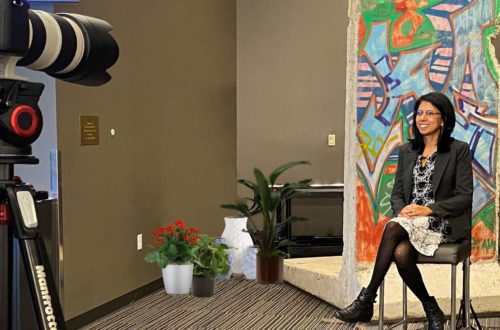
“Never Looked Back” – Is a Myth
Recently I was sharing the story of my career change and someone commented, “…and you never looked back”! I was caught by surprise. The fact is, I did look back, many times. The past 10 years of my new career was anything but easy and many times I doubted and regretted my original decision. That comment invoked a deeper insight in me though.
“I never looked back”, gives us the impression that the person found their ultimate path and everything became better afterward. It is like those “lived happily ever after” fairy tales. This is far from reality and I am yet to meet someone with significant successes, who never looked back. The best interpretation is that they are not giving you the full truth.
First of all, finding the ultimate path is a myth. According to Aaron Hurst, the author of Purpose Economy, the purpose is not a revelation. He wrote,
“Connected to the myth that purpose is about a cause is the myth that we discover our purpose in one fell swoop. We are just walking along, minding our own business when — bam — our life’s calling is transmitted to us like a bolt of lightning from above.”
People find their purpose by exploring and reflecting on their experience, it is a process and not a one and done thing.

Second, self-doubt will happen. While we may like to think successful people are always confident and that is why they are successful. This recent video by Jenifer Lopez who shook the Superbowl stage this year may bust that myth. There was a time she doubted her abilities (even after being number one in the chart). It was paralyzing, but at some point, despite the hurt and the pain, she decided to keep going. Self-doubt is part of the process – in software speak, it is not a bug, it is a feature.
In an interview about his book the Power of Regret, Daniel Pink said,
The research tells us that everybody has regrets, regrets make us human. Truly, the only people without regrets are five-year-olds, people with brain damage and sociopaths. The rest of us, we have regrets, and if we treat our regrets right, …, regrets can actually make us better. They can improve our decision-making skills, improve our negotiation skills, make us better strategists, make us better problem solvers, enhance our sense of meaning.
In my case, It was a long process to figure that I wanted to become a professional coach. And after the rigorous coach training for 18 months, it was not done. Establishing my coaching business was an uphill battle. I didn’t know how to navigate this culture, as my sole experience in the US was as a software professional. My past network was not familiar with the concept of coaching even. Not to mention my business-building skills were practically zero. By the second year, my initial enthusiasm depleted. It forced me to explore new ideas. By the 5th year, I hit another wall, and such peaks and valleys continued over the years. During the moments of despair, the sting of regret hurt really bad even though it became better with time and experience.
The lesson I learned is, “it doesn’t matter how many times you fall, it only matters how you get up and move on”.
As someone who learned to ride the bicycle at 40, I can tell, falling and hurting is part of the process of any such journey. If you don’t get the cuts and bruises along the way, you are not stretching enough and that means you are not growing (which might be even worse). So next time you hear this phrase, “I never looked back”, don’t take it to heart, rather think what can you try now to move forward.
Related posts:




